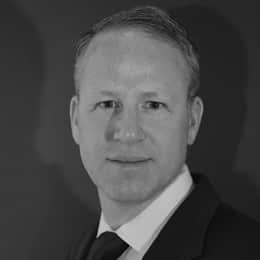Overturning Citizens United Would Be a Disaster for Free Speech
With Democratic nominee Hillary Clinton leading in the polls, it seems likely she will get the chance to deliver on her promise to appoint Supreme Court justices who oppose Citizens United v. Federal Election Commission, the court’s 2010 decision allowing corporations to spend money on political advocacy. As president, Clinton would get to fill Justice Antonin Scalia’s spot, and she might even get the chance to replace the author of Citizens United, Justice Anthony Kennedy, who is 80 years old. Either way, a Clinton presidency would eliminate the conservative majority that produced the decision, opening the door to its reversal.
This is depressing news for anyone who cares about free speech (all the more so because GOP nominee Donald Trump is no better on free speech than Clinton). Citizens United was based on core First Amendment principles: the right to think and speak your mind, to associate with others and to use your own resources to make yourself heard. Overturning it would be a disaster for free speech.
To see why, start with the facts of Citizens United. The law at issue prevented a nonprofit from distributing a film that opposed Clinton when she last ran for president. The government admitted during the case that the law could be applied to books as well. Central to the very idea of free speech is that it protects the right to criticize government. Yet the result of campaign finance laws is to restrict speech precisely because its subject is politics.
That’s unavoidable given the way the laws function. The purpose of campaign finance laws is to limit the amount of money people can spend to influence politics. But because the chief way to influence politics is to speak to voters and candidates, this necessarily means limiting political speech. To speak effectively, people have to spend money — on things like paper and pencils, signs, computers, printing presses, and broadcast facilities. Limit the money people can spend and you limit the speech they produce.
Campaign finance laws also inevitably expand to cover more and more speech. The reason is simple. When the law eliminates one way to influence politics, resourceful individuals find other ways. Limit direct contributions to candidates, and people will buy newspaper ads. Limit those, and they will turn to television, radio, films, books and the internet. Under the campaign finance laws, every new way to speak about politics becomes a “loophole” that must be closed.
It’s no answer to claim that overturning Citizens United would only affect corporations. True, “corporations aren’t people,” as the familiar refrain goes. They are groups of people. When a corporation “speaks,” the individuals who run it are really doing the speaking. They are exercising their right of association, which follows from the right to free speech — if individuals have the right to speak alone, they have the right to speak in groups. The same principle protects the right to speak through many groups, from political parties to public demonstrations.
There’s no logical reason to limit the reach of campaign finance laws to corporations. Any entity that can spend money can spend it to influence politics. Indeed, before Citizens United was decided, supporters of campaign finance laws targeted unincorporated associations such as Swift Boat Veterans for Truth and wealthy individuals who spent their own money on political speech. If Citizens United is overturned, everyone’s political speech will be subject to regulation.
Even the media aren’t safe. Most media entities are corporations, and they certainly spend money to influence politics. The media are currently exempt from campaign finance laws, but that exists at the pleasure of Congress. The idea that Congress would go after the media may sound crazy, but is it any crazier than government restricting films? Trump wants to use the libel laws to silence the press. Is it really farfetched to think politicians would use the campaign finance laws for the same purpose?
Silencing disagreeable speech certainly seems to be a motive of Citizens United’s critics. Clinton has called it “a case about a right-wing attack on me and my campaign.” At the Democratic convention, Marissa Barrow of the Progressive Change Campaign said “Hillary Clinton’s commitment to overturning Citizens United . . . [is] key to improving our chances of victory on every other issue.” Translation: Overturning the case will make it harder for Barrow’s opponents to convince politicians to block her policies.
It’s true that Citizens United led to billions more in political spending. But all of it was spent to produce speech promoting political views. From the standpoint of free speech, that’s a good result, not a bad one. True, much of that money is spent by people who want to feed from the public trough. But freedom to spend money on political speech is not the cause of cronyism any more than freedom of the press is the cause of libel.
Overturning Citizens United won’t eliminate government corruption. But it will allow government to limit our speech — and with it, our right to affect the course of our government.





